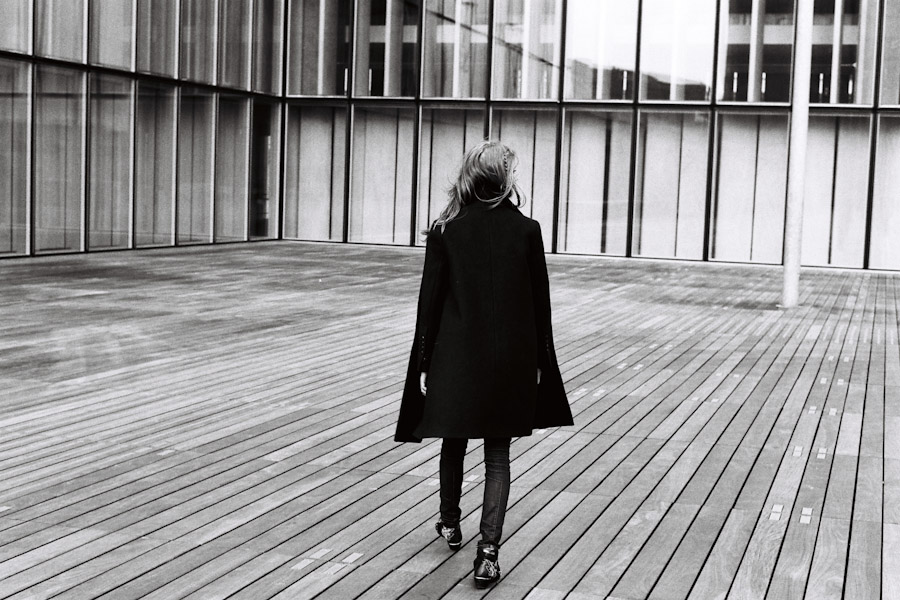If you found the biggest disco fan in the world – a 60-something year old homosexual, African American New Yorker who spent almost every night of the early seventies at clubs like Haven, The Loft or The Gallery – someone who was there, who doesn’t just enjoy the music but was a part of the movement, if you found this hip cat, and asked him if he liked disco music… he’d say no. He’s obviously a fan of disco; he’d just never refer to the music as ‘disco’. ‘Disco’ was a term that gained popularity as the music hit mainstream radio across first New York, and then the States in the early to mid-70s. Much how rock music that was generated for the masses became ‘pop’ music, the funk, soul and club music of the time was branded, ‘disco’. Well hey, let me quote where I first heard about this… “(…) many of the people involved in its early days blanch at using ‘disco’ to describe the music and clubs they knew and loved. They don’t really have an alternative, but they have a strong need to distinguish their music – funky and soulful – and their scene – small, gritty and underground – from what disco eventually became and from how disco is seen by most people today” – ‘Last Night A DJ Saved My Life’ (Bill Brewster & Frank Broughton).
Sounds kinda snobby, doesn’t it? I only read this a few days back. Makes sense though, they created the music, they can call it whatever the funk (haha, that’s a typo that I will refrain from correcting) they want. And don’t even get me started on the use of the term ‘nu-disco’, oh Christ, that’ll be a 100 page investigation for another time. So there’s your history lesson. Now for the music! Something that deserves a lot of attention are the themes of early 70s funk/soul/club music (Let’s just continue calling it ‘disco’, despite the fact I now feel an uncontrollable need to be snobby about it, having truly learnt something from this informative and intellectually-delicious TRUANTS article, The Life & Death of Disco Music pt.2, written by Tom Brown of Tom Brown Inc; damn straight!) What the hell was I talking about? Oh yeah! The themes of disco.
Freedom, togetherness and love. Nowadays these are the most common themes of music of any kind, but during the late 60s and early 70s, when music was becoming a real recognizable social and political force, it was a seriously big deal that society was being so heavily impacted upon by the force of popular music and it’s messages. As I said, this is a topic that deserves a lot of attention, and I’ll be speaking about it soon. But as promised – like 5 sentences ago? Man, you’re impatient – I give you music. Of the three key themes of disco music, let’s look at love. While freedom and togetherness were themes rooted in the establishment of disco as a social movement, love is a universal theme that continued right through the 70s and 80s, the commercialization of disco music, and the beginnings of disco-influenced music styles including electro (electro-funk) and house – you know it!
Bodine – That’s The Kind of Love I’ve Got For You
Rita Jean Bodine has the kind of bass-line capable of impregnating from a distance via the power of funk. Some vintage disco for those of you who are interested. As you can see, it’s heavily influenced by funk music – this was early disco! And it’s damn cool. The guitar and vocals are very folk music, which was really common of early disco music from white musicians, before a disco-genre-forumula was established during the mid 70s. Though it all comes together in the chorus, bass-line guitar and vocals = some serious disco vibes. (1974, Bodine, Rita Jean)
Nancy Wilson – I’m In Love
Nancy Wilson! And not from the band ‘Heart’, ergh! This woman is gorgeous. Her story is not one of disco importance – band and artist profiles of true disco warriors is something I look forward to writing soon! Some comments on the music however. The drums are unbelievably tight on this track! They’re punchy and crisp, quick on the fills and provide not your typical disco beat (4/4 house beat) but a proper strut-tastic (another technical term) funk jam. You got your classic ‘bow-chicka-wow-wow’ guitar going on. The horn blasts are like a serious confidence-boost in audio form. I love it. And Nancy’s vocals I find really interesting – it sounds like she’s running it off the top of her head, there’s a lot of passion and feeling in the vocal. And the way she takes her time hitting the high notes, almost with a lack of assertiveness, I don’t know if this was intentional or how you might feel about it but for me it has a certain air of authenticity and reality about it. Not to mention the back-up vocals complementing Nancy – like a wave softly sweeping the shore of some desolate island… have I gone too far? (1978, Music On My Mind)
Evelyn ‘Champagne’ King – Love Come Down
Phat electro beats, warm analogue bass, piano stabs, synth frills, and an amazing vocal performance – I’m always holding out for that chorus, love it! Quintessential electro-funk and all-round brilliant pop music. Here’s that disco love stretching right into the early 80s. (1982)




I stopped reading after the first line, what utter shit…
“homosexual, African American”
So if you are gay and black you MUST like disco and to be a fan of disco you must be gay and black?
Nicely researched article, jackass
Eh, you only read half of the sentence unfortunately, however if you read the entire sentence you’ll find out the writer was clearly explicating a stereotype. You put that well out of context, nicely done. Do you also get offended when people talk about fat Americans dining at McDonalds or make jokes about Mexican people and tequila?
I think it´s way more offending how you deformed ´homosexual, African American´ to ´gay and BLACK´. Black? Really?
Hey Eric, Tom (the writer) here.
Disco music was founded in New York in the early 70s and was fuelled by the homosexual community’s push for social freedom, and the Afro-American’s long lasting campaign for equality. The ‘Stonewall Rebellion’ was a small incident in which a bar of homosexual transvestites attacked police officers attempting to close down the club – this is often regarded as the birthplace of disco music.
I have done my research, but i apologise if I’ve offended you in any way!
lol eric got owned. cool article, i like the nancy wilson song :))
Good job on keeping your pimp hand strong, Tom.
Also, nice Evelyn King repping, you the man.